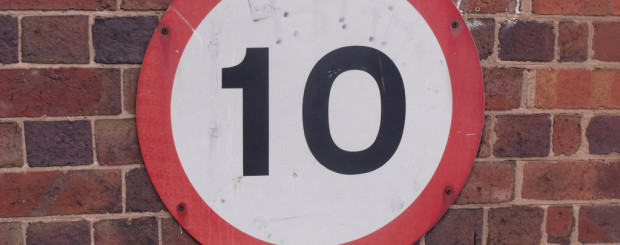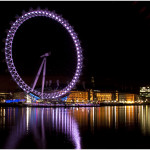10 Essential Tips for Moving to London
So you’ve got your job lined up or have enrolled at a London university and are eagerly anticipating your big move to London. Before you pack your cases, run through our top ten tips below to make sure you are fully prepared for what’s in store.
1. Sort out your ideal accommodation
With hundreds of thousands of flats, apartments and houses available for rent, the sooner you can start narrowing down your accommodation options the better. If you have an opportunity to stay with friends or family while you carry out your search then that is probably your best option. In that case, spend your days visiting estate agents and arranging viewings. Each estate agent maintains its own list of properties and there are lots to choose from, but making the effort to visit as many as possible will be worth it. Beware of agents that entice you in with high quality properties at low prices before trying to palm you off with poor quality alternatives.
If you are unable to search from within the city, make use of the online accommodation search engines like RightMove and Zoopla, and the classified portals Loot and Gumtree, which both feature a property section.
Once you’ve done a bit of research on London’s various boroughs (see tips 2 and 7), you will be able to narrow down your search to specific areas. Remember to balance transport costs with rental rates.
2. Explore the city
London is a gigantic city with lots to do and a wealth of history and culture.
Once you have arrived, make sure you get out and about as much as possible, both in your local area and in the city centre. Ask work colleagues or fellow students for their insider tips and snap up any offers of a social get-together. Get to know where to eat, the best entertainment venues, where to stock up on groceries and where the nearest post office and banks are. Start learning the history of your area and how it fits into the jigsaw of Greater London. Visit the tourist attractions as well, but don’t forget to dig below the surface for a taste of real London.
3. Meet up with people
London is a teeming metropolis but it is possible for newcomers to feel lonely at first. The English ways can seem very alien and people – on the surface – may seem aloof, especially on the commute to and from work.
Socialising can start even before you set foot in the capital. Join social network groups frequented by fellow expats and find out where they are living. You might be fortunate enough to find someone near your chosen location or to arrange a hook-up in the centre. Expat forums are another great way to ask questions and make contacts. Just remember to think about your personal safety at all times and never divulge too much over the internet.
Once you’ve arrived, joining an evening class or a gym is a great way to start building up contacts. Some Londoners are as reserved as the stereotype suggests and you should back off if your enthusiasm isn’t returned. Don’t worry though, Londoners usually just need a bit of warming up and are often very friendly once the ice is broken.
4. Set up a bank account
Another task which shouldn’t be left too long is setting up a bank account. You may be lucky enough to find a bank that will allow you to open an account before arriving, but many require your presence in a London branch.
You will also be expected to produce paperwork, with the exact requirements depending on the bank in question. Typical requests are for a passport/EU ID card and proof of address.
Many expats are stung by lengthy bank account application procedures, leaving them short of ready cash, so make sure you take enough to cover at least two weeks’ living expenses.
5. Get a UK mobile phone
The UK has an excellent mobile phone network operated by four big companies (EE, O2-UK, Vodafone UK and Three). Each offer a large variety of contracts with handsets, SIM-only contracts or Pay As You Go SIMs. Not only is your mobile going to be vital for keeping in touch with friends, family and colleagues, you are also likely to benefit from internet access. Therefore, a contract-based deal will probably be more economical since each operator offers economical call, text and data packages. If you are likely to be visiting home a lot, make sure you enquire about international roaming options.
A maps application (e.g. Google Maps) can be a real bonus when learning to navigate the streets of London,
6. Learn the language & etiquette
The vast majority of London residents (over 96 per cent) speak and understand British English, with over three-quarters speaking it as their first language. For speakers of other English languages (e.g. American English), it is worth familiarising yourself with the differences (like no ‘z’ in familiarise!) Common differences include the use of pavement instead of sidewalk, lift instead of elevator and crisps instead of chips (chips come with fish in the UK’s National dish!)
You will also need to learn the manners that will be expected of you when in London. For example, British people are very conscientious of ‘turn-taking’ and even in a busy bar there is an understanding that you are served in order of arrival; it is considered very rude to ‘jump a queue’. One faux pax to avoid is confusing being English with being British. People from Scotland, Wales or Ireland will be offended if you refer to them as English.
7. Master the transport system
London is serviced by five main airports plus the EuroStar service. Information about Heathrow, Gatwick, Luton, London and Stanstead airports can be found on their own websites. The National Rail website provides all the information you will need for travelling into London by train.
For travelling within London, whether by bicycle, bus, train or underground train (the Tube) your indispensible guide is the Transport for London website, where you can also find out about the Oyster Card (which will save you money on transport). As of 2014, you can no longer pay by cash on London buses!
8. Understand the money & costs
London, in common with the rest of the UK, uses Pound Sterling as its currency. At the time of writing, one pound was equal to about 1.25 Euro and 1.70 US dollars. A UK pound is comprised of 100 pence available in denominations of 1p, 2p, 5p, 20p, 50p. There are also one pound and two pound coins, and five,ten and twenty pound notes. While you can get fifty pound notes, many retailers will refuse them (or be irritated by them).
Money can be withdrawn from banks, street ATMs (very common) and often Post Offices using a bank debit card. Withdrawal is often free but you should check with ATMs as some will charge you. Using a credit, as opposed to debit, card to withdraw cash is an easy mistake to make and will also incur charges.
Cheques are often not accepted for small purchases. Travellers’ cheques can be cashed at banks, post offices and at a Bureau de Change, and currency can also be exchanged here. Charges can be extortionate so shop around for the best rate.
Be warned! London prices are one of the biggest shocks to expats.
9. About tipping
Tipping at restaurants, hairdressers and for services such as porterage and taxi rides is a common practice but only if a ‘service charge’ is not included. A tip of 10-15 per cent is normal, with 75p to a pound reasonable per bag for porterage.
10. Learn to love the weather
The weather continues to be another source of surprise for expats. London, in common with the rest of the UK, has a changeable climate and a scorching morning can be followed by a cold and wet afternoon. Contrary to myth, London doesn’t rain every day, but you can expect an average of eight days of rain a month in the summer and ten a month in the winter. Temperatures in London are higher than much of the UK due to the urban island effect, with 13 to 24 degrees Celsius the avarage for July and 2 to 9 degrees celsius the average for December through February.
If you are expecting a postcard ‘white Christmas’ you might have to wait a long time. The last two years which saw snow on the ground on 25th December in the UK were in 2009 and 2010, and both times London missed out.








